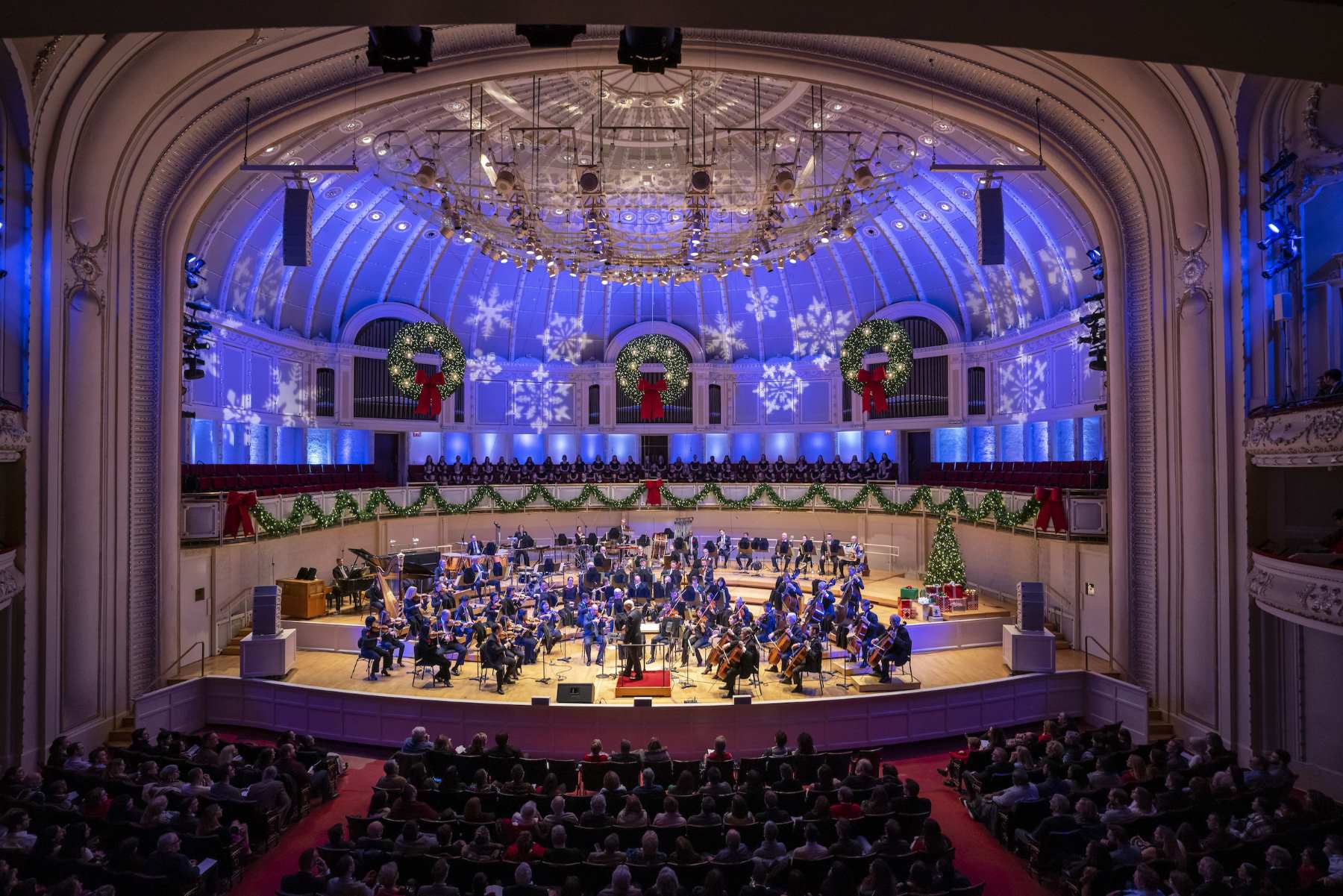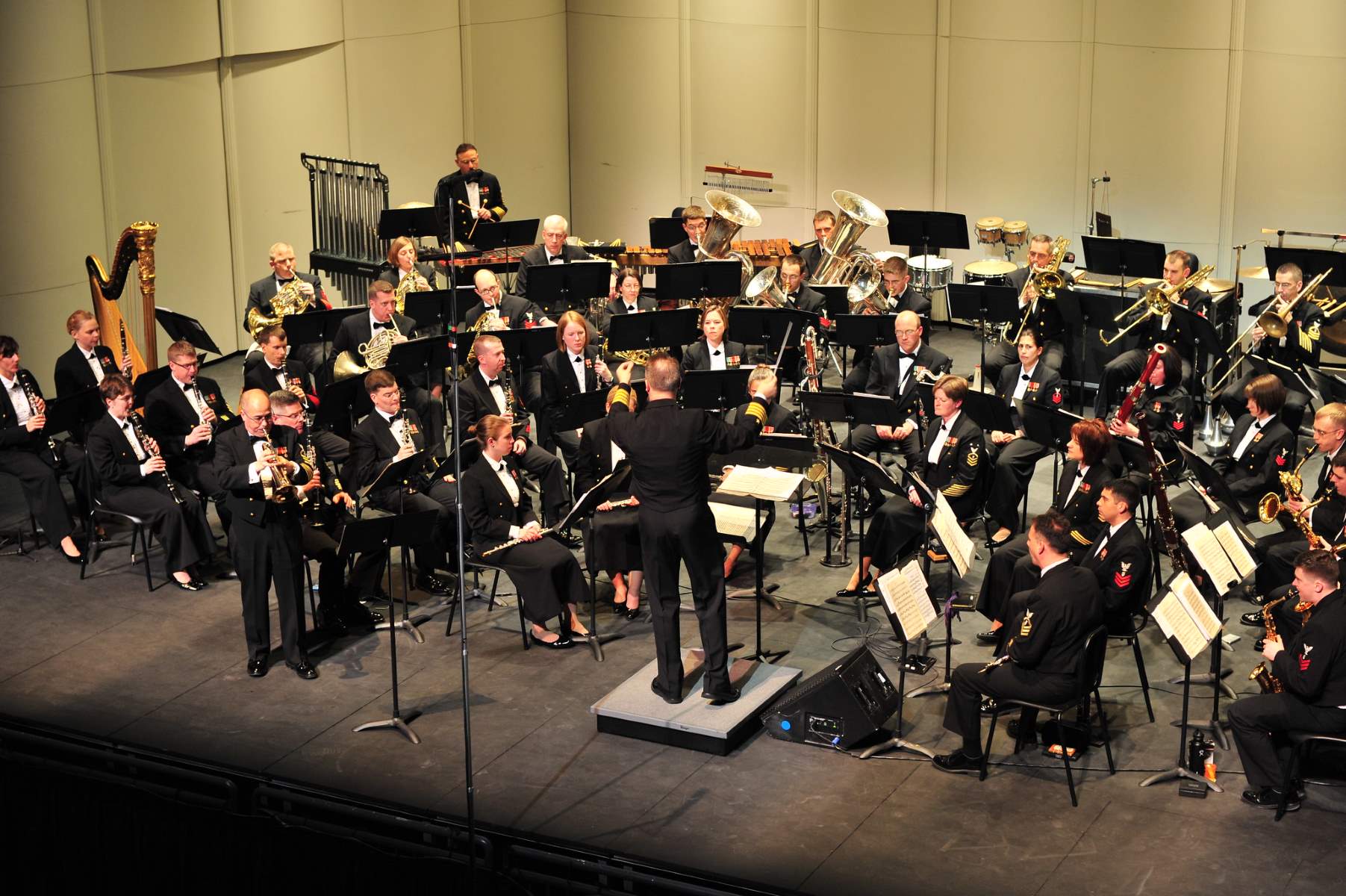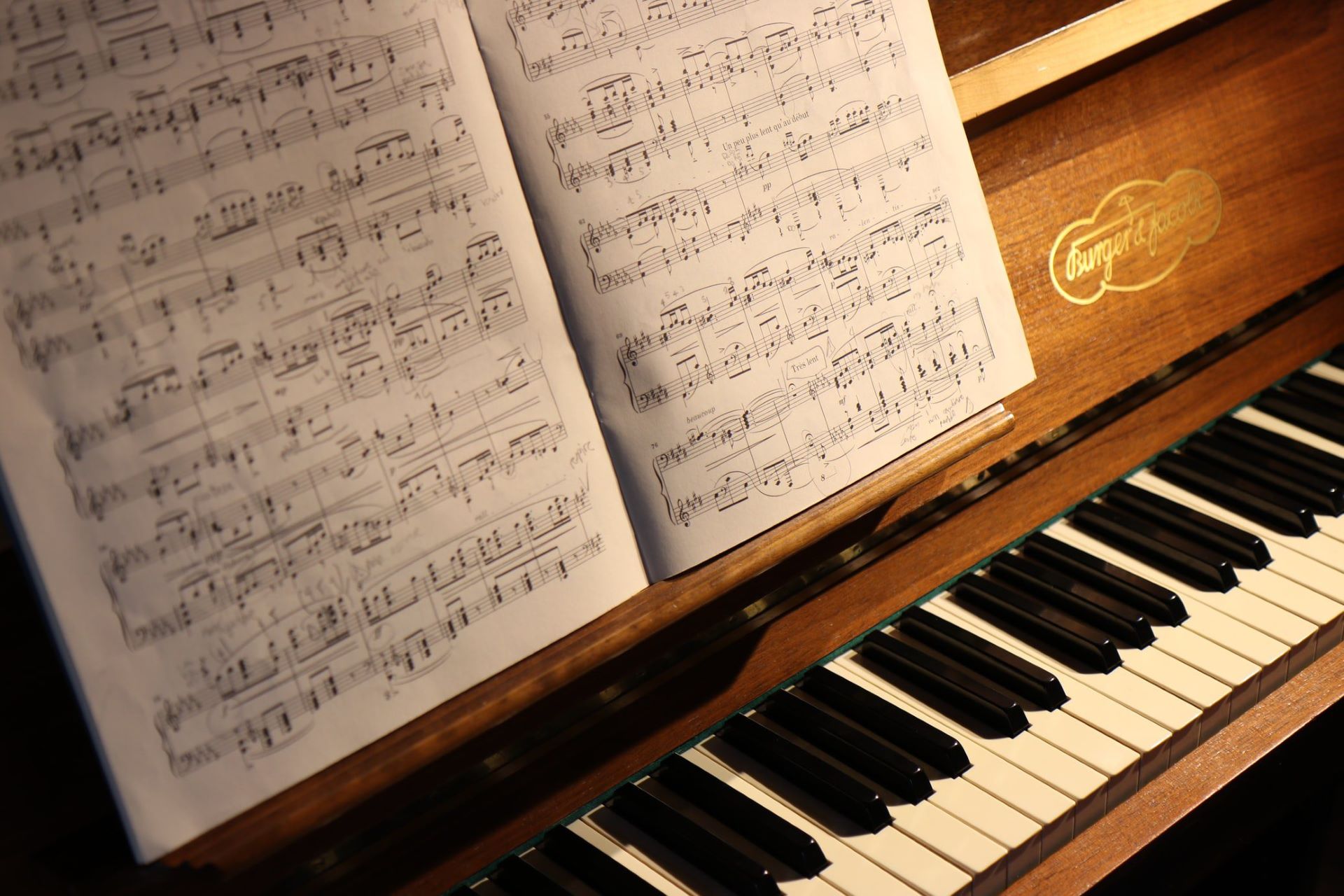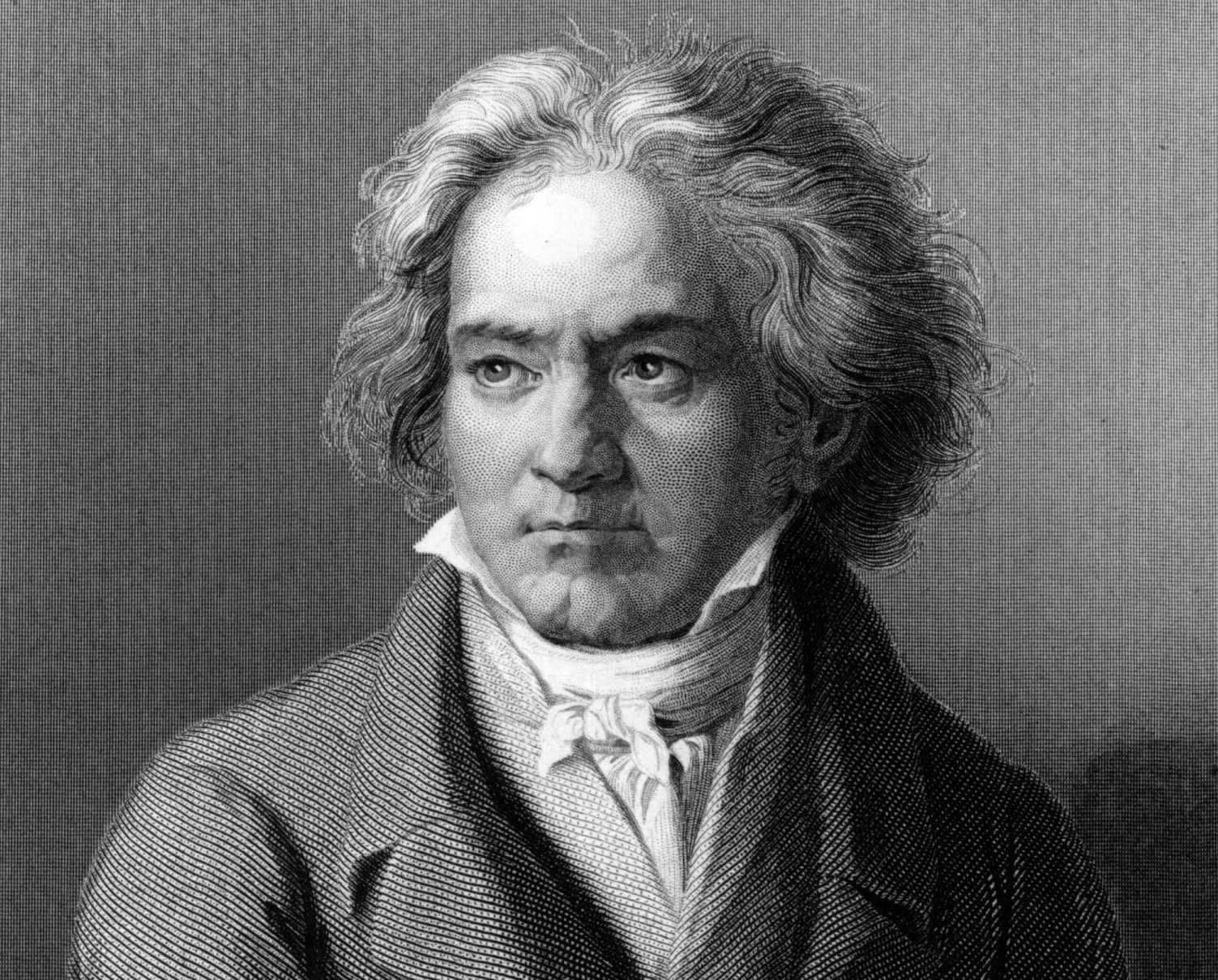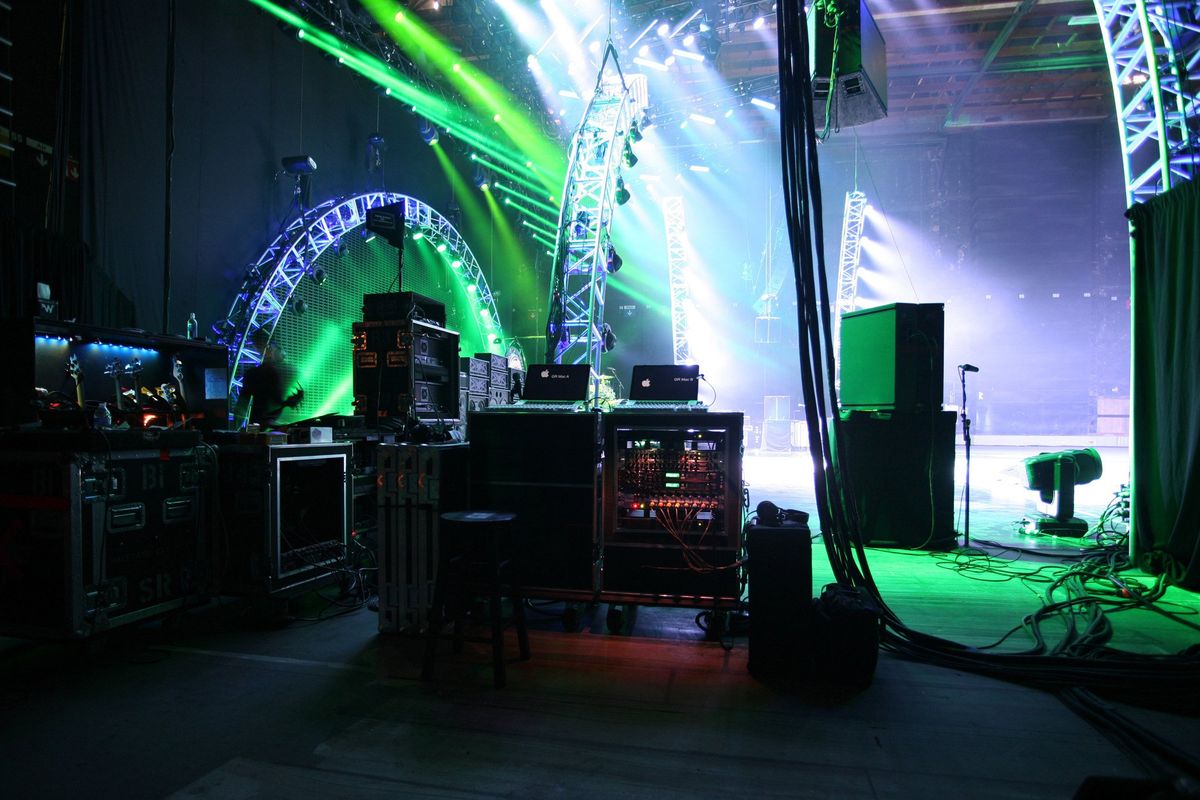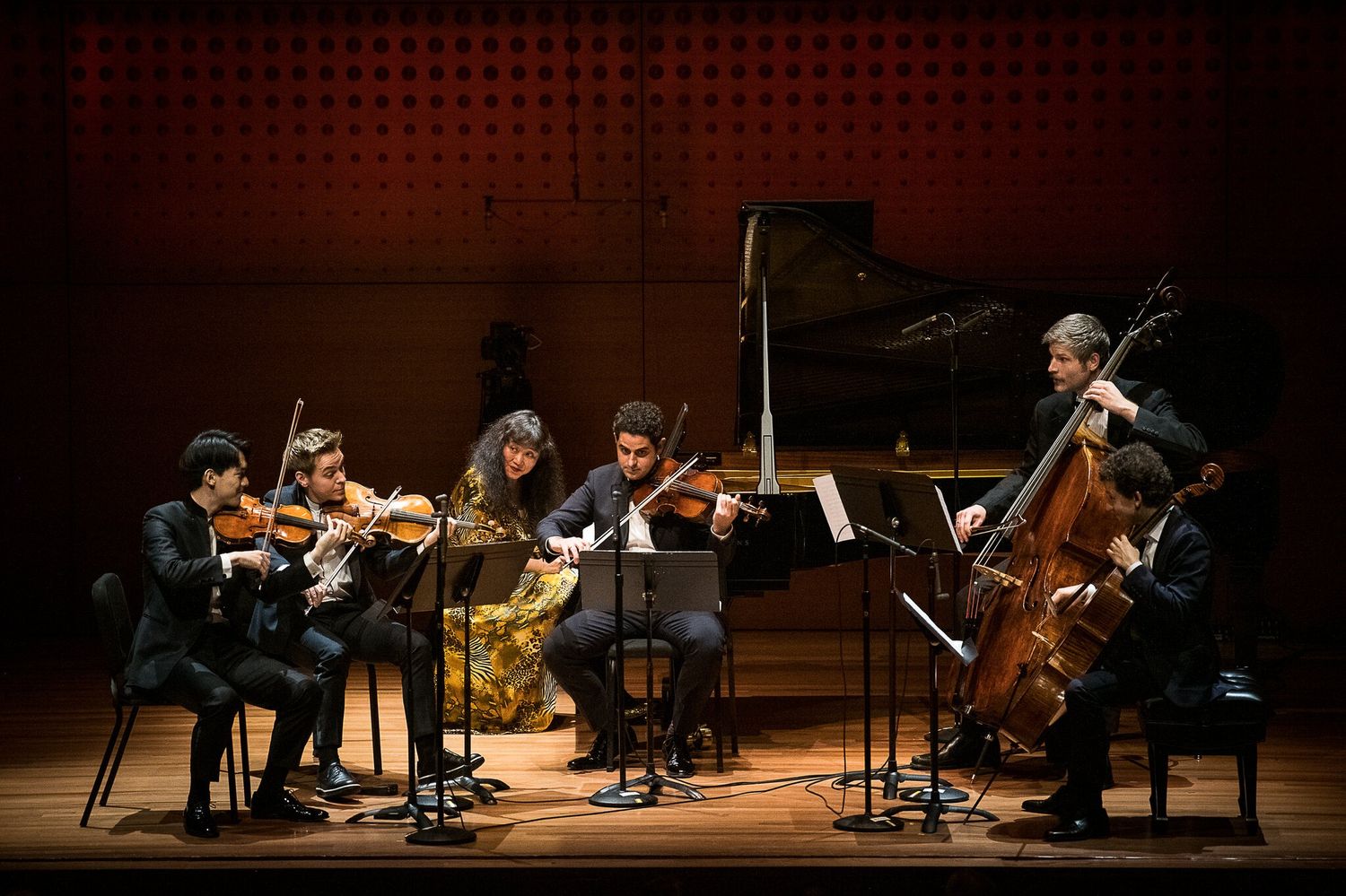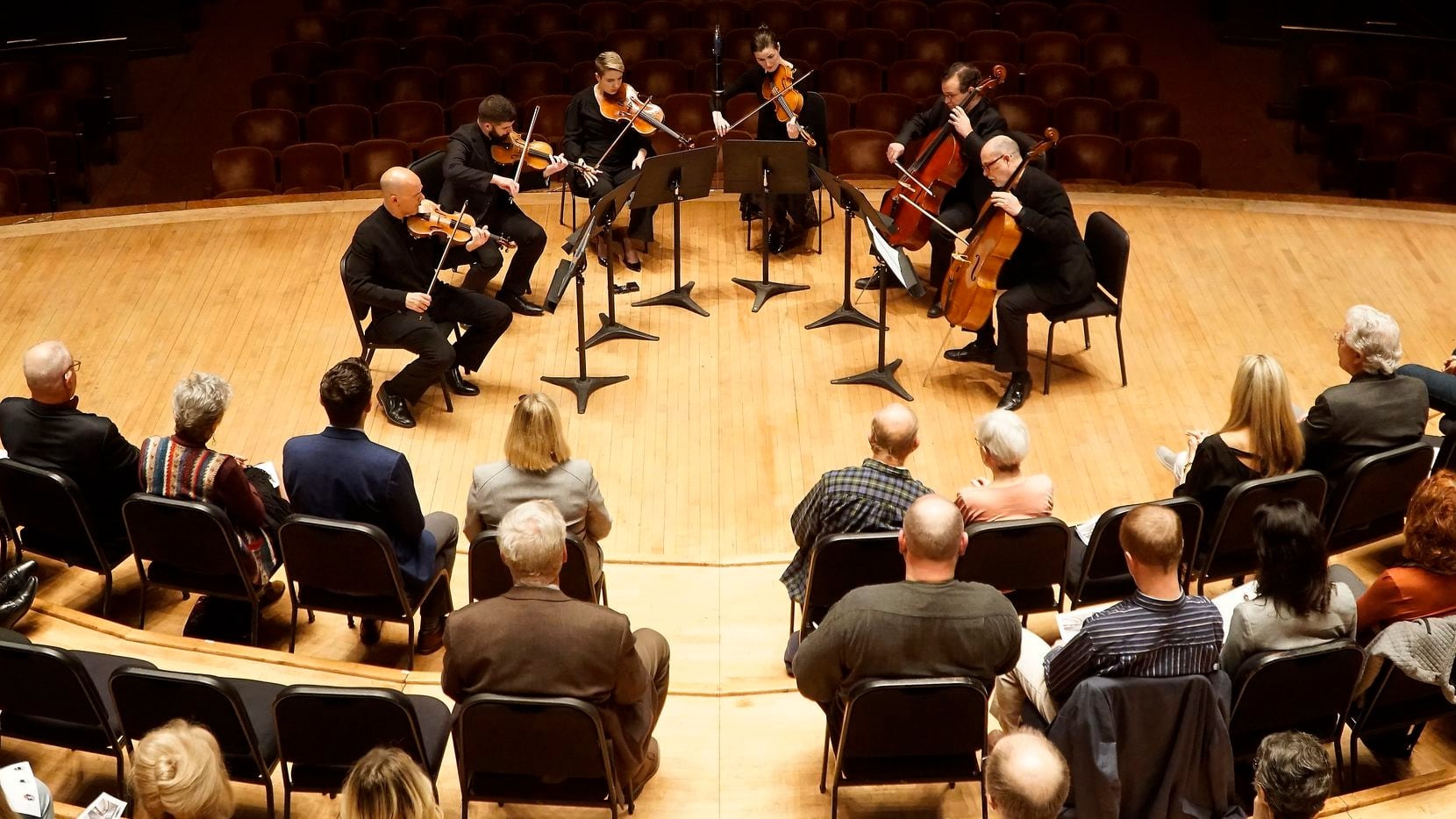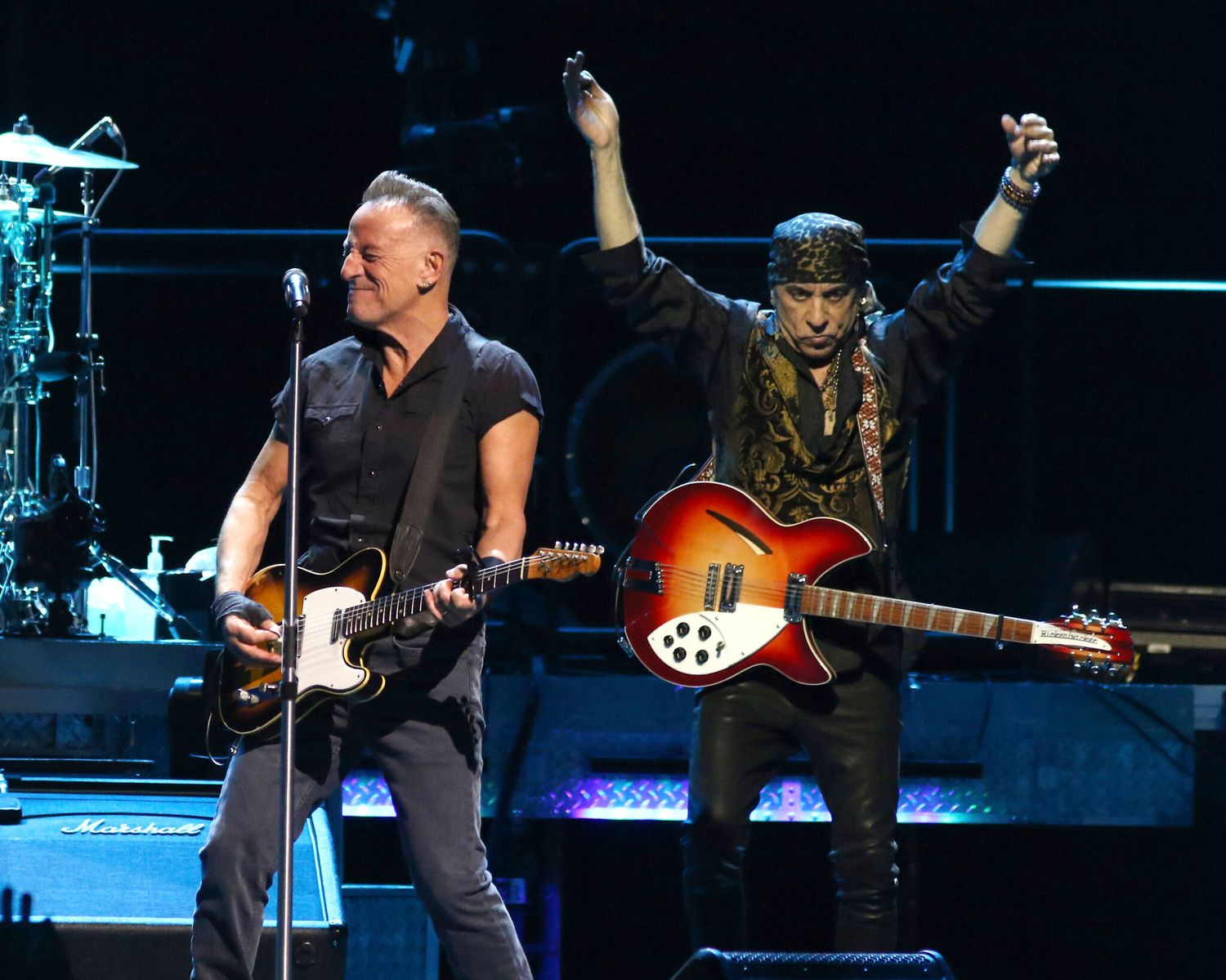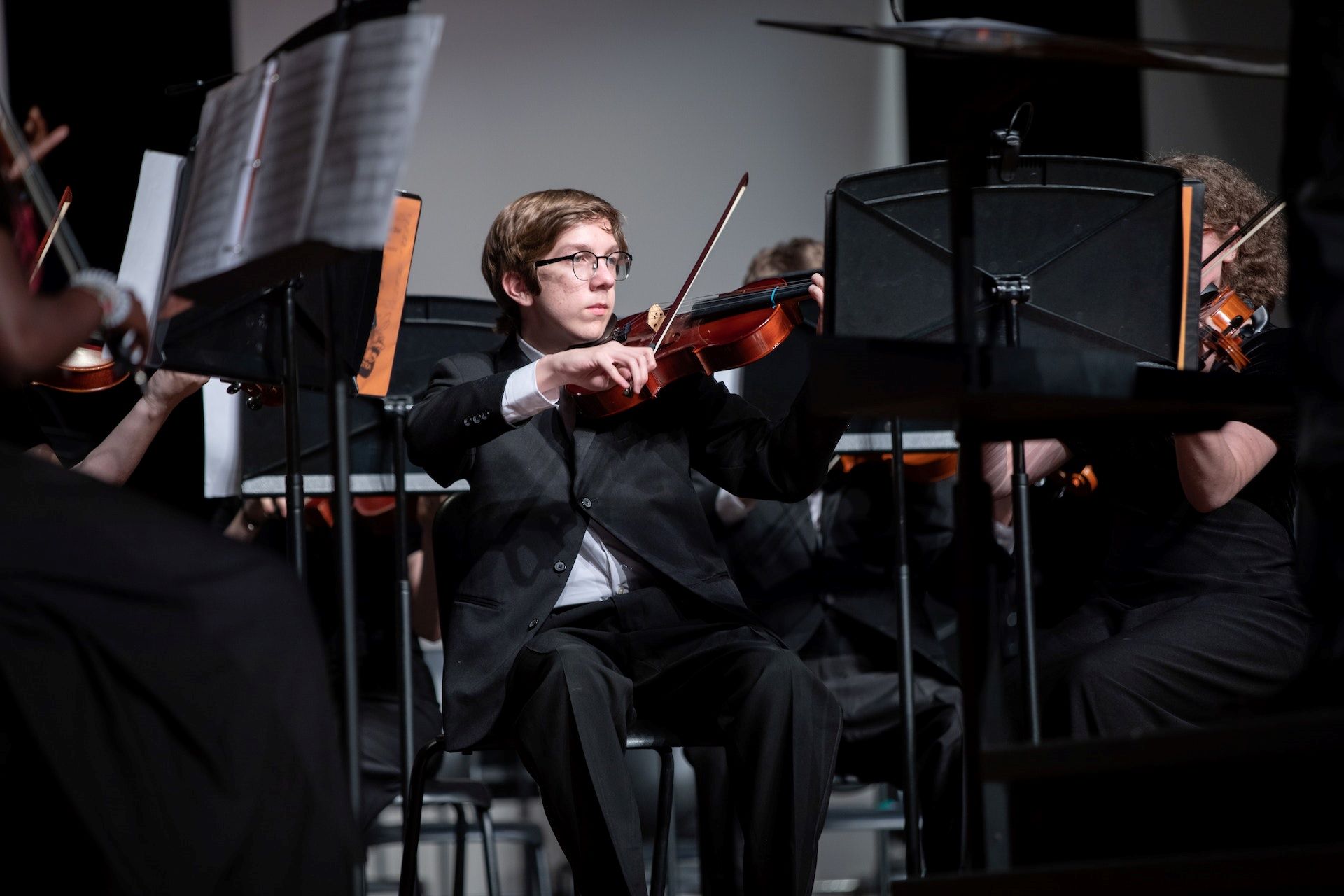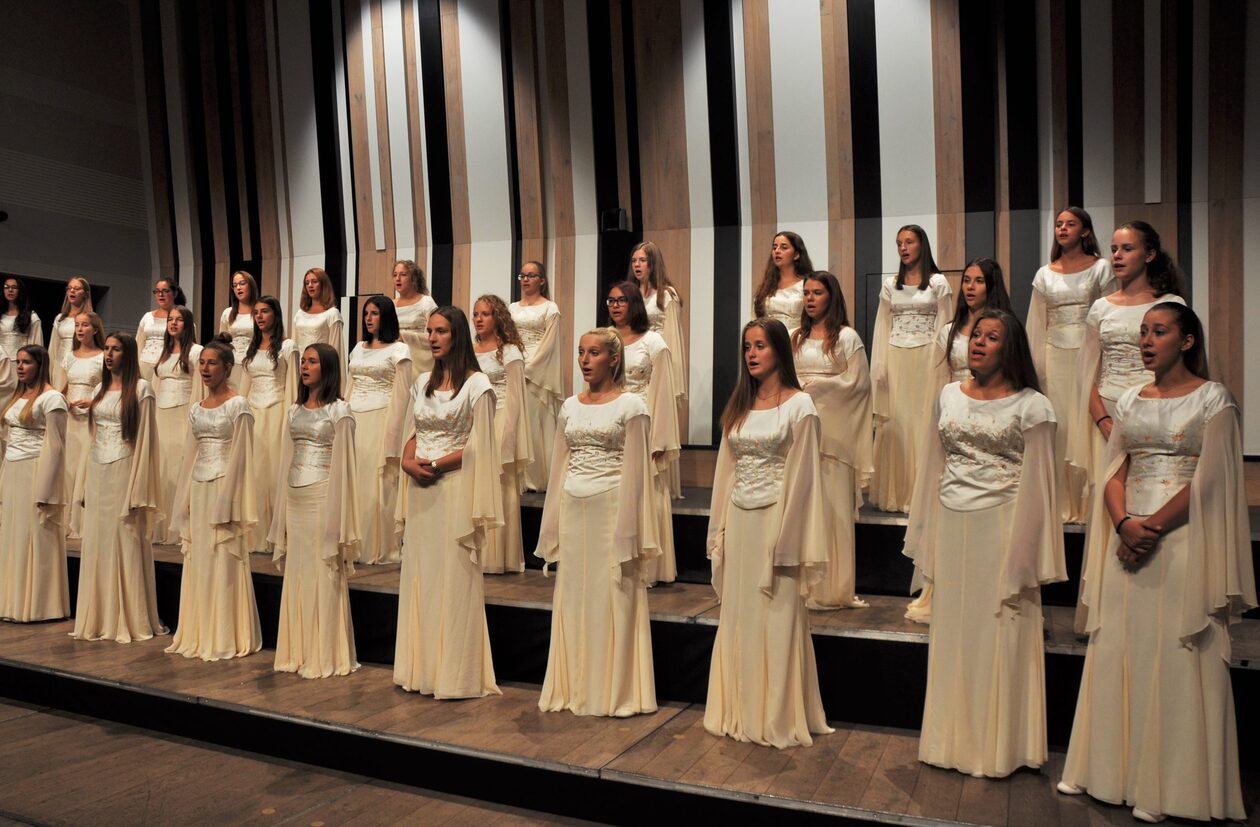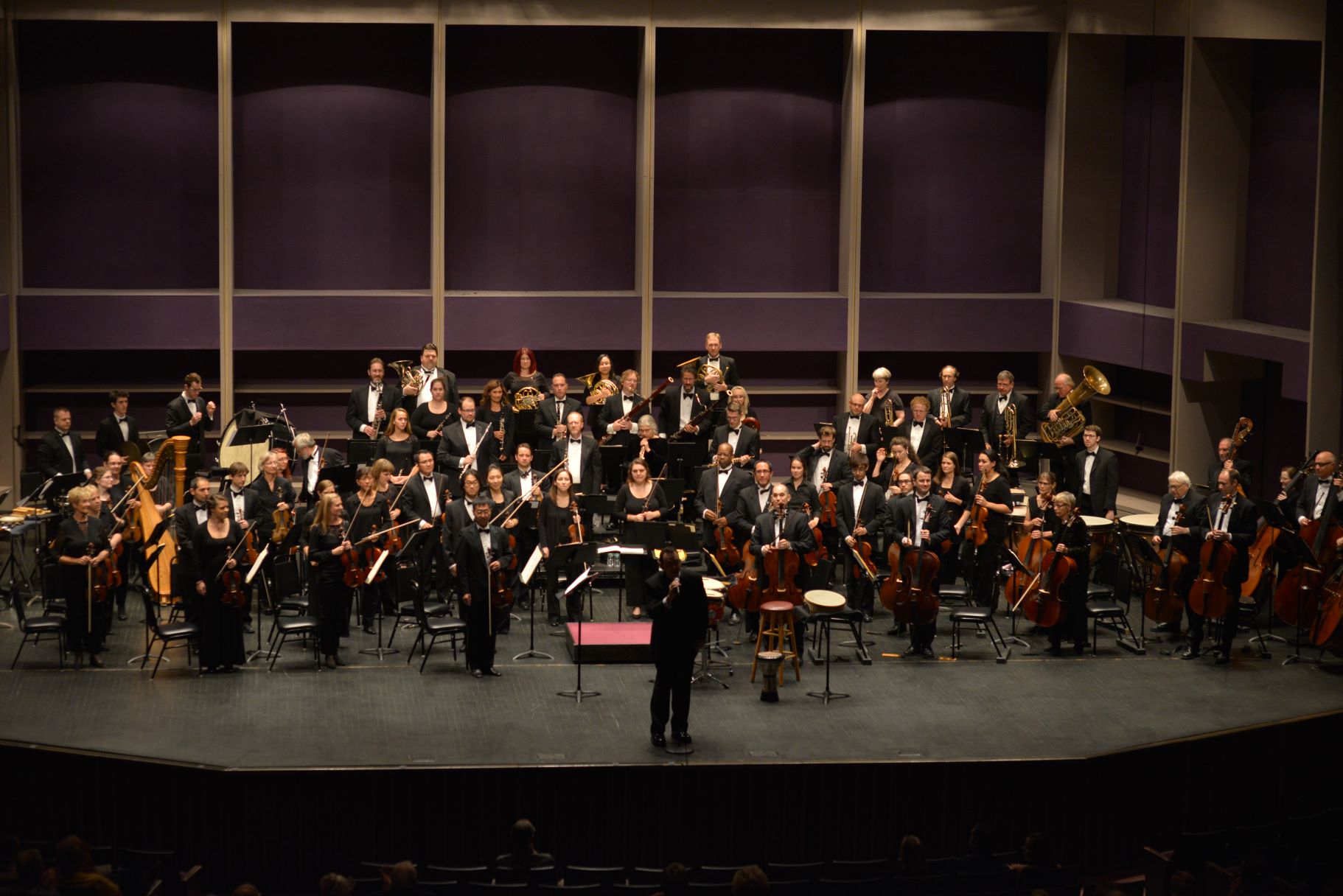

Symphony
How Long Is A Symphony Concert
Modified: February 24, 2024
Discover the duration of a symphony concert and explore the world of symphonic music. Find out how long symphonies typically last and plan your next musical experience.
(Many of the links in this article redirect to a specific reviewed product. Your purchase of these products through affiliate links helps to generate commission for AudioLover.com, at no extra cost. Learn more)
Table of Contents
Introduction
A symphony concert is an extraordinary musical experience that brings together the beauty of symphonic compositions with the skill and passion of talented musicians. From the breathtaking orchestral arrangements to the captivating performances, a symphony concert is a feast for the senses. But how long does a symphony concert typically last?
In this article, we will delve into the world of symphony concerts and explore the factors that contribute to their duration. Whether you’re a seasoned concertgoer or a curious newcomer, join us as we unravel the mysteries of the symphony concert timeline.
Music has the remarkable ability to transport us to different emotional landscapes, and symphony concerts exemplify this power. They showcase compositions created by masterful composers such as Beethoven, Mozart, and Bach, among others. The grandeur and complexity of these compositions make symphony concerts a rich and memorable experience.
Attending a symphony concert allows us to witness the harmonious collaboration between an array of instruments, including strings, woodwinds, brass, and percussion. Each section of the orchestra plays a vital role in bringing the music to life, creating a symphony of sound that resonates with the audience.
Moreover, symphony concerts are usually held in prestigious venues, such as concert halls or opera houses, which provide exceptional acoustics and a captivating ambiance. The combination of the music, the venue, and the collective energy of the audience creates an immersive experience, showcasing the true power of symphonic artistry.
While the allure of symphony concerts is undeniable, it is important to understand the duration of these performances to plan your schedule accordingly. Whether you are a music enthusiast looking to immerse yourself in a full-length symphony or someone seeking a shorter concert experience, knowing what to expect can greatly enhance your enjoyment of the event.
So, let’s delve into the world of symphony concert durations and discover the factors that contribute to their length.
What is a Symphony Concert?
A symphony concert is a live performance of symphonic music, featuring an orchestra composed of various instruments, including strings, woodwinds, brass, and percussion. It is a harmonious collaboration of talented musicians, led by a conductor, who work together to bring classical compositions to life.
At its core, a symphony concert revolves around the performance of symphonies, which are extensive musical compositions typically divided into multiple movements. These movements vary in tempo, dynamics, and mood, creating a diverse and captivating musical experience.
During a symphony concert, the orchestra showcases its technical prowess and artistry, as each musician plays their part in synchrony with the others. The conductor’s role is crucial in interpreting the composer’s intentions and directing the performance, ensuring that each section of the orchestra works harmoniously to create a cohesive and captivating sound.
In addition to symphonies, a symphony concert may also include other forms of classical works, such as concertos, overtures, and tone poems. These compositions often feature soloists who display their virtuosity on instruments like the piano, violin, or cello, accompanied by the orchestra.
The repertoire performed in a symphony concert spans centuries, ranging from the works of renowned composers of the classical period, such as Mozart and Haydn, to the epic symphonies of the Romantic era composers like Beethoven, Mahler, and Tchaikovsky. Contemporary compositions and innovative interpretations of classical pieces also find their place in symphony concerts.
Attending a symphony concert offers an opportunity to experience the grandeur and depth of classical music. It allows the audience to witness the seamless interplay between different instruments, the dynamic range of emotions conveyed through the music, and the sheer talent and dedication of the musicians. It is a symphony of sights and sounds that evokes deep emotions, transports the listener to different worlds, and leaves a lasting impact.
Now that we have a deeper understanding of what a symphony concert entails, let’s explore the factors that contribute to the duration of these captivating musical performances.
The Duration of a Symphony Concert
The duration of a symphony concert can vary significantly depending on various factors, including the repertoire being performed, the number of movements or pieces, and the artistic choices made by the conductor and performers.
On average, a symphony concert typically lasts between two to three hours, including an intermission. However, it is essential to note that this is just a general estimate, and the actual duration can vary from concert to concert.
The length of a symphony concert is primarily determined by the repertoire being presented. Symphony orchestras often perform symphonies, which consist of several movements. Each movement can vary in length, ranging from a few minutes to more than twenty minutes. The number of movements performed within a symphony contributes to the overall duration of the concert.
Additionally, symphony concerts may include other musical compositions, such as concertos, overtures, or other orchestral works. These pieces might feature a soloist or highlight specific sections of the orchestra, adding further variety to the concert program.
The artistic choices made by the conductor and performers also play a role in the duration of a symphony concert. Conductors may choose to vary the tempo or dynamics of a piece, emphasizing certain passages or allowing for more expressive interpretations, which can impact the overall duration of the performance.
Furthermore, some symphony concerts incorporate multimedia presentations or collaborations with other art forms, such as dance or visual arts. These additional elements may influence the duration of the concert, as they require coordination and synchronization with the music.
It is worth mentioning that some symphony concerts may take place without an intermission, particularly if the program consists of shorter compositions or if the composer specifically intended for the pieces to be performed without interruption. These concerts can provide a more condensed musical experience, allowing the audience to remain immersed in the music without breaks.
Ultimately, the duration of a symphony concert is carefully curated to balance the artistic vision of the conductor, the repertoire being performed, and the experience desired for the audience. Whether it’s a shorter, focused program or a more extended performance with multiple movements, symphony concerts offer a mesmerizing journey into the world of classical music.
Now that we have explored the factors influencing the duration of symphony concerts, let’s delve deeper into some of the specific elements that can affect the length of these awe-inspiring performances.
Factors That Affect the Length of a Symphony Concert
The duration of a symphony concert can be influenced by various factors that impact the planning and execution of the performance. Understanding these factors can provide insights into the length of a symphony concert and help concertgoers make informed choices about their attendance. Let’s explore some of the key factors that can affect the duration of a symphony concert.
1. Repertoire: The choice of repertoire greatly impacts the length of a symphony concert. Symphonies can vary in length, with some lasting as short as 15 minutes and others extending over an hour. Other compositions, such as concertos or overtures, add to the overall runtime of the concert. Additionally, performing multiple pieces or a complete symphony cycle within a single concert can significantly increase its duration.
2. Number of Movements: Symphonies are typically composed of multiple movements, each with its own distinctive character. The number of movements played in a concert can vary depending on the repertoire. Conductors and orchestras may choose to perform the entire symphony or select specific movements, thereby affecting the overall duration of the performance.
3. Tempo and Interpretation: The artistic choices of the conductor and performers also play a role in the duration of a symphony concert. The tempo, or speed, at which a piece is performed can vary, and some conductors may choose to take more expressive liberties, adding subtle nuances and extending certain passages. These interpretative choices can impact the overall length of the concert.
4. Collaborative Elements: Symphony concerts occasionally feature collaborations with other art forms, such as dance, theater, or multimedia presentations. These collaborations require coordination and integration with the musical performance. Depending on the complexity and length of these collaborations, they can influence the overall duration of the concert.
5. Intermission: Many symphony concerts include an intermission, providing the audience a break between segments of the program. The length of the intermission itself can vary but generally ranges from 15 to 30 minutes. The decision to include an intermission depends on factors such as the duration of the pieces performed, the need for instrumentalists to rest, and the overall flow of the concert.
6. Pre-concert Activities: Some symphony concerts may have pre-concert activities, such as educational talks or prelude performances. While these activities occur before the official start time of the concert, they contribute to the overall experience for attendees and may affect the perceived duration of the event.
7. Encores: Encores, additional performances that are not originally programmed, can also impact the length of a symphony concert. If the audience shows overwhelming enthusiasm and requests an encore, it can extend the concert’s duration. However, encores are not always included in every concert and depend on the discretion of the performers.
It is important to note that while these factors can influence the length of a symphony concert, there is no standard formula dictating the exact duration. Each concert is meticulously curated by the conductor and artistic team to create a unique and engaging experience for the audience.
Now that we have explored the factors that can affect the duration of a symphony concert, let’s examine the typical length of these performances and noteworthy examples of exceptionally long symphony concerts.
Typical Length of Symphony Concerts
The typical length of a symphony concert can vary based on the factors discussed earlier but generally falls within the range of two to three hours, including an intermission. This duration allows for a comprehensive and immersive experience, offering a balance between showcasing a substantial repertoire and providing the audience with a meaningful musical journey.
Most symphony concerts feature a program consisting of one or two major compositions, such as a complete symphony or a concerto, accompanied by additional shorter pieces or overtures. This combination ensures a varied and dynamic concert experience while maintaining a reasonable runtime.
The first half of a symphony concert often lasts around 45 minutes to an hour, followed by an intermission of 15 to 30 minutes. The second half typically mirrors the length of the first, with the overall concert duration, including the intermission, averaging between two to three hours.
It’s important to note that the length of a symphony concert can vary based on the repertoire being performed and the artistic choices made by the conductor and performers. Some concerts may feature shorter compositions or focus on a specific theme, resulting in a slightly shorter runtime. On the other hand, more ambitious programs, such as complete symphony cycles or evenings dedicated to showcasing the works of a specific composer, can extend the length of the concert.
In addition, special performances or events may offer extended versions of symphony concerts, providing an in-depth exploration of a particular composer or featuring collaborations with other art forms. These extended concerts can range from three to four hours or even more, immersing the audience in a comprehensive and immersive musical experience.
Overall, the typical length of a symphony concert aims to strike a balance between presenting a substantial repertoire for the audience’s enjoyment and ensuring a manageable duration without compromising the artistic integrity of the performance.
Now that we have explored the typical length of symphony concerts, let’s take a look at some noteworthy examples of exceptionally long symphony concerts that hold records in the history of classical music.
Longest Symphony Concerts in History
Symphony concerts have witnessed extraordinary feats of endurance by musicians and audiences alike, with some performances stretching into exceptionally long durations. These marathon concerts have left an indelible mark in the history of classical music. Let’s explore a few noteworthy examples of some of the longest symphony concerts ever recorded:
1. The Beethoven Marathon (1989): In celebration of the bicentennial anniversary of Beethoven’s birth, conductor Leonard Bernstein led the Vienna Philharmonic Orchestra in a historic performance of all nine Beethoven symphonies. This mammoth undertaking lasted approximately eight hours, capturing the essence of Beethoven’s genius in a single monumental concert.
2. Live Earth Symphony (2007): As part of the Live Earth global concert series, the Live Earth Symphony was a 24-hour performance that took place in Sydney, Australia. Conducted by renowned maestro Giovanni Allevi, the concert featured a non-stop symphonic experience with a rotating lineup of musicians and orchestras from around the world, highlighting the urgency of climate change.
3. The Longest Symphony (2016): A unique endeavor by composer and conductor Alban Berg, “The Longest Symphony” is an experimental composition that has no specified duration. Instead, it is designed to be performed continuously until the conductor decides to end it. The premiere performance in 2016 lasted a staggering 117 hours, making it one of the longest symphony concerts ever held.
4. The Mahler Symphony Cycle (2008): In 2008, conductor Valery Gergiev and the London Symphony Orchestra embarked on an ambitious project to perform all of Gustav Mahler’s symphonies in chronological order. This complete cycle comprised of ten symphonies, some of which are notoriously long and complex. Spanning several evenings, the entire series lasted over two weeks, showcasing the depth and breadth of Mahler’s symphonic masterpieces.
These are just a few examples of the longest symphony concerts in history. Such remarkable performances not only test the endurance of the musicians but also challenge the concentration and enthusiasm of the audience. They serve as remarkable milestones demonstrating the deep connection between music, time, and the human spirit.
While attending these marathon symphony concerts may require significant time and commitment, they offer unparalleled experiences for those who are passionate about delving into the captivating world of symphonic music.
As we conclude our exploration of the longest symphony concerts, let’s reflect on the enduring power of these performances and the profound impact they have on the appreciation and understanding of classical music.
Conclusion
Symphony concerts provide a transcendent experience, combining the talents of skilled musicians, the beauty of symphonic compositions, and the reverence of prestigious venues. The duration of a symphony concert can vary depending on various factors, including the repertoire, number of movements, artistic choices of the conductor, and additional collaborative elements. On average, a symphony concert lasts between two to three hours, intermission included.
Understanding the typical length of a symphony concert allows concertgoers to plan their schedules accordingly and fully immerse themselves in the mesmerizing world of classical music. From the captivating performances of symphonies and concertos to the intricate interpretations by conductors and the possibility of collaborations with other art forms, every symphony concert presents a unique and enchanting experience.
While most symphony concerts adhere to a standard duration, there have been remarkable instances of extraordinarily long performances throughout history. From the Beethoven Marathon to the Live Earth Symphony and the innovative “Longest Symphony,” these concerts push the boundaries of endurance and leave a lasting impression on the audience.
Whether attending a symphony concert for the first time or as a seasoned concertgoer, each experience offers an opportunity to be transported by the power of music. The symphony concert is not merely a performance but a collective journey through the emotions, stories, and brilliance of centuries-old compositions.
By exploring the length, repertoire, and factors that influence the duration of symphony concerts, we gain a deeper appreciation for the meticulous planning and artistic decisions made by conductors and orchestras. Their goal is to create an unforgettable experience that connects performers and audience members in a shared musical exploration.
As you prepare to attend your next symphony concert, embrace the anticipation and wonder that comes with it. Let the music guide you through the ebb and flow of each movement, allowing yourself to get lost in the melodies, harmonies, and enchantment that symphony concerts offer.
Whether it’s the timeless classics of Mozart and Beethoven or the bold compositions of contemporary masters, symphony concerts have the power to captivate, inspire, and leave a lasting impact. So, sit back, open your heart to the symphonic journey, and let the melodies unravel before you.

